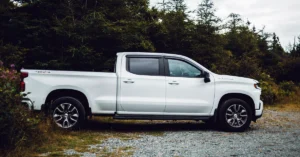Getting a driving license is one of the biggest milestones for any adult it represents freedom, independence, and, for many expats, a fresh start in a new country. But as cities grow more congested and road safety becomes more urgent, governments are tightening the rules around who can drive and how vehicles must be registered and maintained.
In 2024, several updates have been introduced to driving license regulations, vehicle registration, and road use laws. These changes are designed to promote safer driving, control traffic volume, and ensure vehicles on the road are in optimal condition. This guide walks you through the latest changes, what they mean for drivers, and how to stay compliant wherever you live.
Key Changes to Driving License Rules in 2024
Minimum Age Lowered to 17
Under the updated driving law, individuals can now apply for a driving license at 17 years of age. To qualify, applicants must pass a medical fitness exam and a road test conducted by the local licensing authority. This change aligns with global trends aimed at offering earlier access to supervised driving.
Learner’s Permit Now Mandatory for Beginners
New drivers must first obtain a learner’s license before hitting the road. Driving without it even during lessons is strictly prohibited. Driving schools and instructors must also be fully licensed and operate vehicles specifically designated for driver training.
Stricter Oversight for Driving Instructors
Instructors are now required to hold a valid teaching permit, and any training activity must happen within approved zones. Driving on public roads in busy areas is restricted for learners to minimize accident risks.
License Suspension Rules Updated
Authorities can now suspend a license not just for violations but also for reasons such as medical unfitness or failure to meet public safety standards. If a driver is deemed physically or mentally unfit, or if a pattern of high-risk behaviour is detected, suspension may occur even without a recent traffic offense.
Tourists and Visitors
Tourists can drive using international driving permits or licenses from approved countries. However, the rules around which licenses are accepted are updated regularly, and travellers are advised to verify eligibility before driving.
Vehicle Registration and Ownership: What’s New
Vehicle Registration Is Now Stricter
Every vehicle used on public roads must be officially registered with the traffic authority of the respective region. This includes passing technical inspections and having valid insurance coverage. Vehicles that fail inspection cannot be registered or renewed until repairs are made.
Agency-Registered Vehicles
If you’re buying a new car from an approved dealership, the agency typically handles the entire registration process for you. But if you’re buying from a private seller or bringing in an imported vehicle, you must register it yourself via government portals or smart applications.
Digital Registration Services
Vehicle registration can now be completed via official websites or mobile apps, such as:
- Ministry of Interior (MOI)
- Emirates Vehicle Gate
- RTA (Roads and Transport Authority)
- Abu Dhabi Police smart services
Documents Required for Registration Include:
- Emirates ID or national identification document
- Proof of vehicle ownership (clearance certificate, export certificate, etc.)
- Valid insurance
- Vehicle inspection certificate
- Trade license and authorization letter (for company vehicles)
Vehicle Modification and Recall Policies
All modifications to your vehicle must be pre-approved. Whether it’s a body kit or engine tuning, failure to notify authorities could result in registration revocation. Authorities also have the right to recall a vehicle for re-inspection. If deficiencies are found, you must resolve them before driving the car again.
Vehicle Repair After Accidents Now Regulated
Workshops are no longer allowed to repair damaged vehicles without a repair permit from the traffic control authority. This rule ensures all accident repairs are properly documented and inspected.
Vehicle Leasing and Rentals Require Licenses
Companies offering rental services must be licensed. Before handing over a vehicle to a customer, they must verify the customer’s driver’s license and ensure its valid and recognized.
Rising Traffic Congestion and Stricter Car Ownership Proposals
As urban populations surge, traffic congestion is becoming a major issue especially in areas with high car density and underdeveloped public transport networks. Governments are responding with proposals that may reshape how cars are owned and used.
Why Are Stricter Rules Being Considered?
- Rapid Vehicle Growth: In some regions, the vehicle population is growing faster than infrastructure can accommodate.
- Road Congestion: Commuters are losing hundreds of hours annually in traffic.
- Public Transport Gaps: While some cities boast advanced Metro systems, others lag behind.
- Environmental Impact: Older vehicles contribute heavily to pollution, prompting consideration of emissions-based restrictions.
What Restrictions Could Be Introduced?
- Car Ownership Caps Per Household
Limits based on income, space, or household size could reduce vehicle density in urban areas. - Higher Registration Fees for Second Vehicles
Additional fees could be introduced to discourage owning multiple cars within the same household. - Stricter Vehicle Age Regulations
Older cars might be phased out or taxed higher unless upgraded to meet emission and safety standards. - Incentives for Shared Mobility
Government support for carpooling apps, corporate shuttles, and ride-sharing programs is increasing. - Metro and Bus Network Expansion
Cities are investing in Metro line extensions, dedicated bus lanes, and smart traffic systems powered by AI. - Promoting Remote Work
Businesses may be encouraged to offer flexible hours or remote work options to ease traffic during peak hours.
Practical Tips for Drivers and Vehicle Owners
Stay Updated
Traffic regulations evolve frequently. Follow local transportation authorities on social media or subscribe to their newsletters for real-time updates.
Go Digital
Use government portals and apps to handle all your license, registration, fine payment, and inspection needs without queuing up at service centers.
Plan Vehicle Purchases Strategically
With potential ownership caps and stricter inspection rules on the horizon, evaluate whether buying a second car is necessary or viable in the long run.
Explore Public Transport and Carpooling
If your city offers reliable public transit or ride-share options, consider mixing them into your commute. It saves money, reduces petrol usage, and often saves time during peak hours.
Prepare for Vehicle Inspections
Regular maintenance is more important than ever. Keep your car in top shape to avoid failing mandatory inspections or being subject to costly repair-related delays.
Final Thoughts
As road safety, environmental awareness, and urban congestion become pressing global issues, driving laws are evolving to meet new challenges. The new licensing and registration regulations reflect a broader shift toward smarter, safer, and more sustainable transport systems.
Whether you’re a first-time driver or a seasoned commuter, staying informed and adapting to these changes will keep you compliant and ahead of the curve.
Want help staying road-legal, safe, and stress-free?
MotorHub makes it easy. Track your vehicle’s condition, get notified about license renewals, access inspection-ready services, and connect with trusted workshops all in one platform.This article includes insights from recent updates in the UAE, where over 1.2 million vehicles enter Dubai daily and stricter driving and registration laws are being actively enforced to combat congestion and pollution



